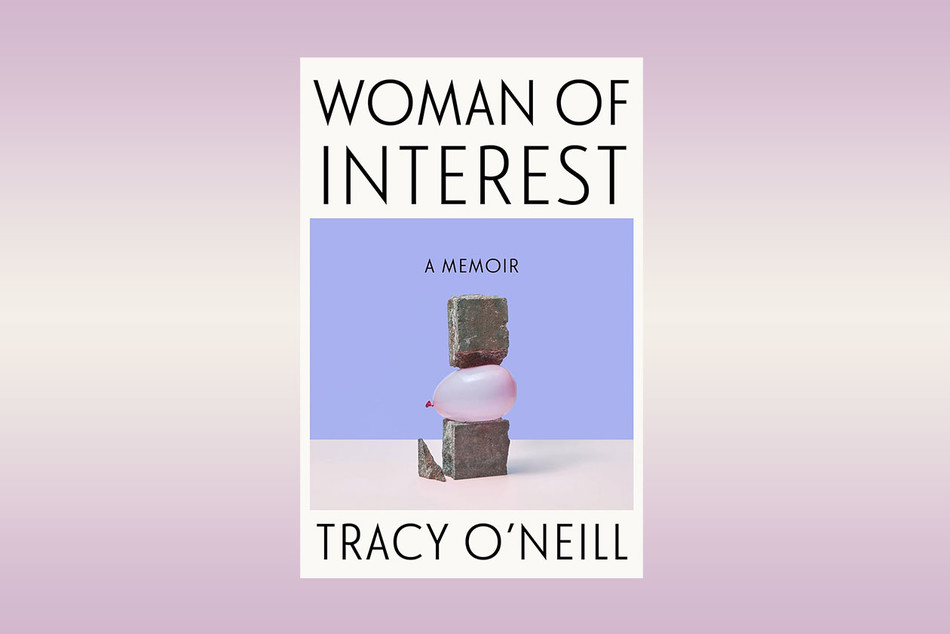When the coronavirus pandemic hit the United States in 2020, it disrupted the rhythms of daily life and imbued even the most basic human interactions with potential danger. Those early months were a time of upheaval for all Americans, but for Tracy O’Neill ’20JRN, the isolation and uncertainty coincided with personal tumult. She broke up with the partner she’d been with for a decade and moved from her longtime home in Brooklyn to Poughkeepsie for a teaching job at Vassar College, deepening her seclusion. Amid this crisis of self, a period during which she found herself “unrecognizable,” O’Neill began an obsession with locating a missing woman — her birth mother.
O’Neill, a novelist and National Book Foundation “5 Under 35” honoree, was born in South Korea in 1986 and adopted as an infant by an Irish-American couple. Raised in New England, she long believed in the “O’Neill ethos,” which dictated that “family was formed not by nature but by the fact that you wanted enough to be family.” Until she was thirty-three, O’Neill hadn’t given much thought to learning more about the woman her adoption papers named as Cho Kee Yeon. But during the lockdowns of spring 2020, O’Neill — gripped by the thought that her birth mother might be dying alone in Korea — set out to find her.
In her stylish and perceptive memoir Woman of Interest, O’Neill documents her search. But rather than follow the typical arc of an adoptee’s quest for self-knowledge, the book mimics the form of a noir mystery. O’Neill casts herself as the hard-boiled detective and her birth mother as the titular woman of interest, a femme fatale “whose committed crime was a birth.” The result is a darkly comic meditation on the difficulty of truly understanding others and, ultimately, oneself.
In adopting this frame, O’Neill affords herself the opportunity to play with language and form. Describing an early conversation with a private investigator who claims to have once apprehended one of the FBI’s “most wanted,” O’Neill takes on the stylized rhythm of a character straight out of Raymond Chandler: “This is where I confess that when I began my investigation, the case had been cold over thirty years. And you can live with a cold case … Solving is the aberration, and I’d copped no novel leads. But I had a clincher … Namely: my life depended on this missing person. I mean she had been one of my mothers.” After the PI ghosts her, O’Neill tracks down her own leads — as she puts it, “staking out possibilities was, after all, a writer’s long racket.”
Her search bore fruit in December 2021. Thanks to a DNA test, O’Neill connected with a distant relative in Washington, who then connected her with her mother, whose name turned out to actually be Cho Kyu Yeon. O’Neill located not just her woman of interest but an entire cadre of Cho family members she had not known existed — aunts, cousins, and even three half siblings. Later that month, O’Neill flew to Daejeon, South Korea, where she spent ten days quarantining in a cousin’s apartment before staying with her birth mother just outside Seoul.
In the chapters set in South Korea, O’Neill largely pulls back from the intense noir style, instead meditating on how her linguistic abilities and enthusiasm failed her in her pursuit of getting to know the woman who brought her into this world. Because O’Neill never learned Korean, she was forced to communicate with her birth mother and other Cho relatives using Google Translate and Naver Papago, apps that “burped” out text without tone and with questionable accuracy. “We played telephone on the telephone,” O’Neill writes. Complicating matters, the story the Chos told themselves about O’Neill’s birth and her birth parents’ characters and relationship kept shifting. “Facts and lies are mixed,” O’Neill’s cousin tells her at one point, unconsciously summing up the Chos’ approach to storytelling.
Woman of Interest does not end as a detective novel might, with the missing woman’s true identity revealed and loose ends neatly tied up. Real life doesn’t resolve so cleanly, and, as O’Neill writes, “the search is not always the search you think it is.” But in reflecting on meeting the stranger who gave birth to her, O’Neill steps into a deeper conception of herself, becoming her own woman of interest.



